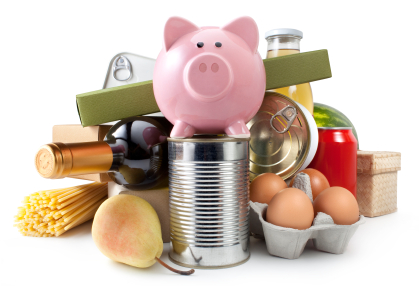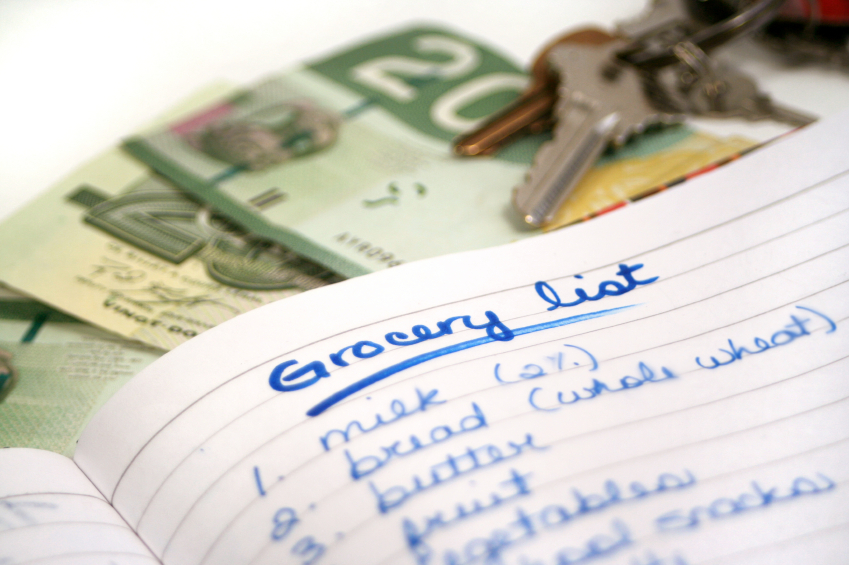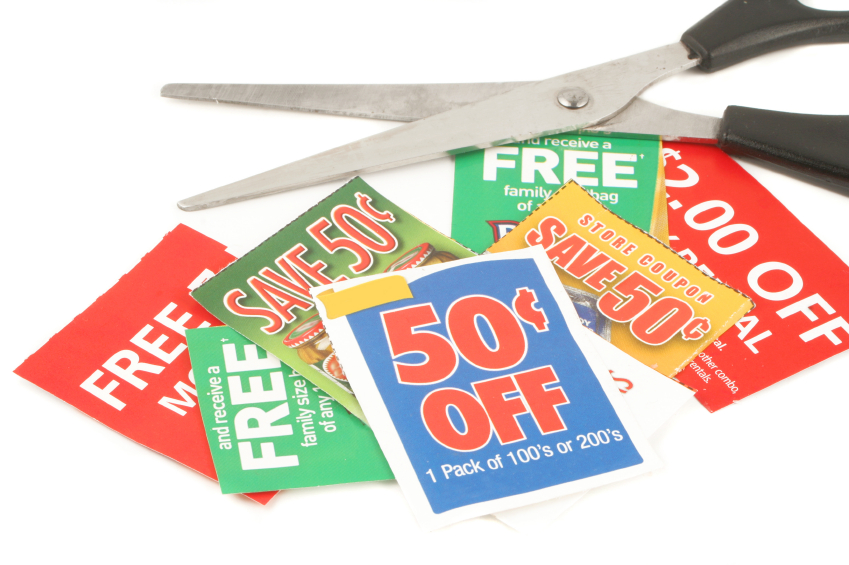25 Budget Grocery Shopping Tips to Save Money
Have you noticed how much of your overall budget you spend on groceries? Grocery shopping is a significant expense for most families and households, but there are ways to make it more affordable.
Here are 25 tips to save money on groceries when you're shopping with a budget:

How to Make Wise Grocery Shopping Choices
- Shop on a full stomach. You’ll buy less snacks and/or things you don’t usually buy - and only buy groceries, not gifts and all the extra stuff, at the grocery store!
- Go armed with a list and stick to it, especially if your kids are “helping”.
- Plan your meals for the week before you shop and then buy what’s on the menu. Start with planning for 3 or 4 days if all week seems too much.
- Shop only once a week. You’ll tend to spend more if you stop at the store every day or several times a week.
- Shop when you have energy and aren’t worn out from a busy day. It’s easier to focus and make wise choices when you’ve got energy and aren’t preoccupied.
- Return your bottles and cans for the deposit that you paid. If you've got kids, get them to help with this job and let them keep the cash they earn.
- Shop in familiar stores when you’re tired, stressed or in a hurry. You’ll find what you need and be able to get out with what you need quickly.
Plan Ahead to Save Money on Food and Grocery Shopping
- Plan meals so that you have leftovers for lunch the next day, or freeze leftovers for a quick meal another day.
- Package your own treats, juices and snacks. Buy the large package or snacks and a box of baggies and make your own individually wrapped packages to grab on the run.
- Buy less canned and packaged convenience foods and shred your own lettuce and cheese (cheeses often freeze well too!).
- Clean out your fridge and cupboards once a month. Use up what you bought before buying more.
- Organize your food storage cupboards and drawers. If you don’t know what you have or can’t find what you bought, you’ll end up buying more of the same unnecessarily.
- If you stock up, watch expiry dates and package the food to preserve it as long as needed.
- If you buy large packages or meat, pre–cook or marinate it and then freeze it to speed up meal times. If you know that you’ve got food ready at home, it’s less tempting to eat out.
- Spend some time once a week washing and/or cutting up fruit and vegetables. This will speed up dinner and lunch preparations and provide healthy snacks that are ready to go.
Shop with a Budget and Save Money at the Grocery Store
- Don’t buy snacks on the run. They are often less healthy and more expensive.
- Get creative and try new foods. You may find less expensive food that you enjoy just as much!
- Shop with a calculator and add things up as you put them in your cart. If you're shopping with kids, give them the job to tally what's in the cart. It will help you stick to your spending plan.
- Learn how to cook or bake. Hit up a family member for help or take a class.
- Buy non–food grocery items like detergent or garbage bags at a discount store.
- Only buy what you need and can afford; 3-for-1 is only a good deal if you can use three.
- Price check and shop around for discounts on items you buy regularly. Use store and manufacturer coupons when you can. Consider using one of these grocery apps on either a smartphone or tablet.

- Remember that smaller sizes can sometimes be a good deal. Do the math, either on your phone or with your calculator.
- Don’t automatically overlook no-name or store brands. Many are made by the brand name companies, just with a different label.
- Even if it’s “on sale,” it’s only a good buy if you will use it!
If You Only Try One Tip to Save Money on Grocery Shopping
If you only want to try one tip, make it a really good one. In fact, the one tip that will likely save you the most money when you're grocery shopping on a budget is to plan your meals and snacks ahead of time. By planning ahead, you can make your shopping list based on what you already have, what you still need to buy and what's on sale.
Making an easy, nutritious, budget-conscious menu plan doesn't have to be hard. Start with two or three dinners, plan for leftovers so that you've got work lunches, add in some snacks and keep quick and easy breakfast foods on hand. Just like with anything new, give it a try before you decide that you don't like it. Saving time and money might just agree with you and your budget!
Comments
Post a Comment